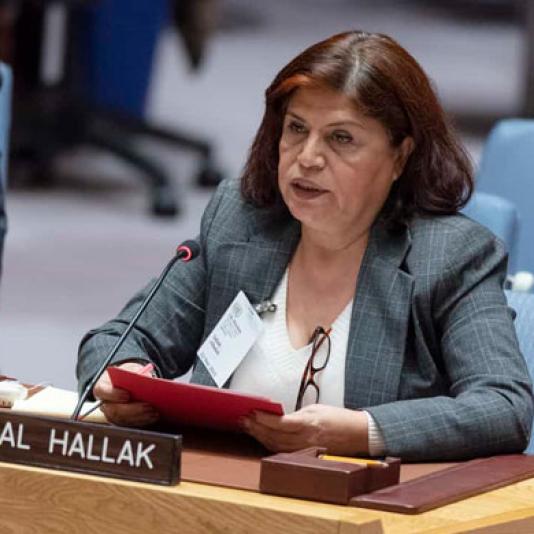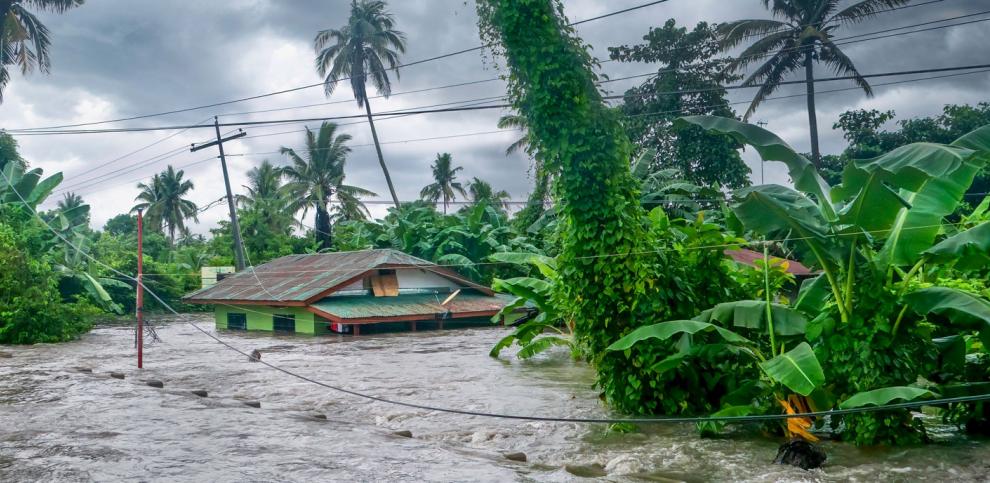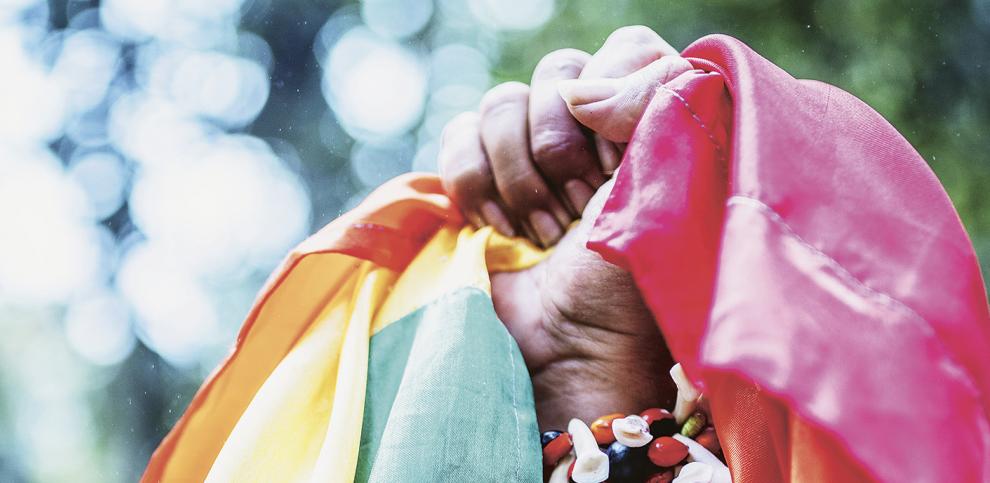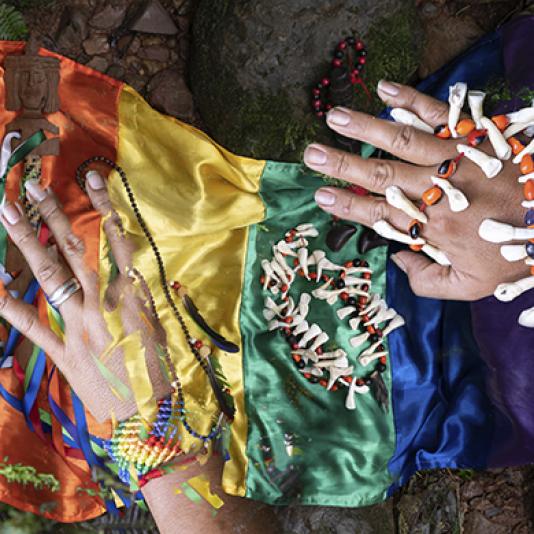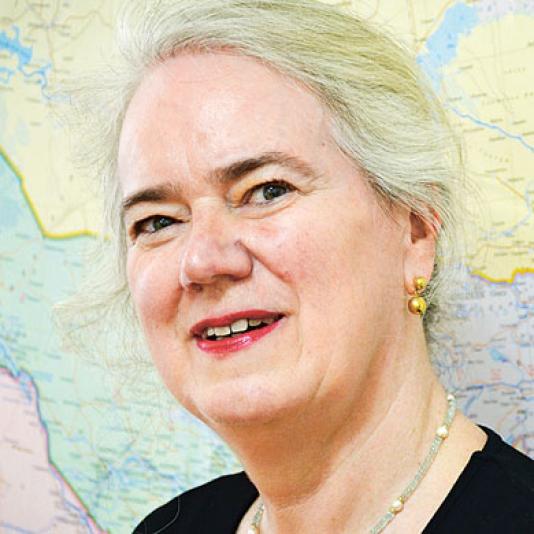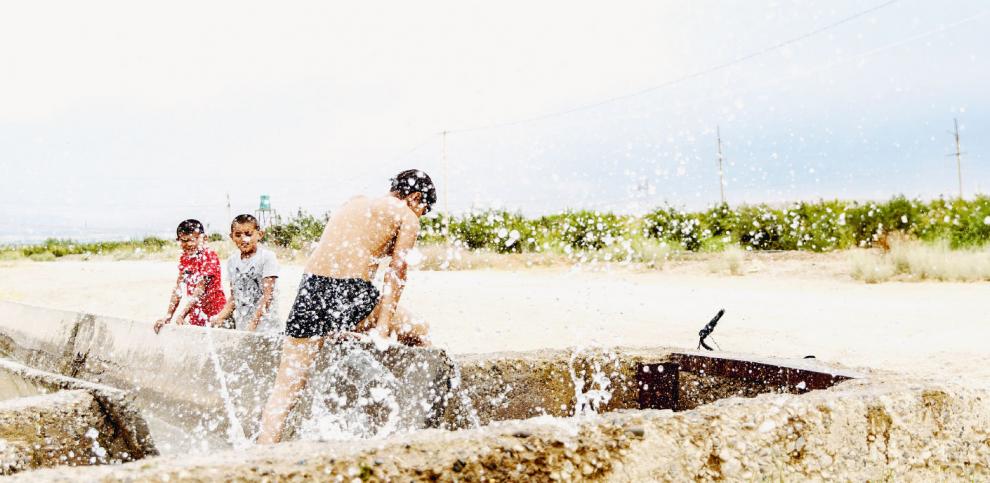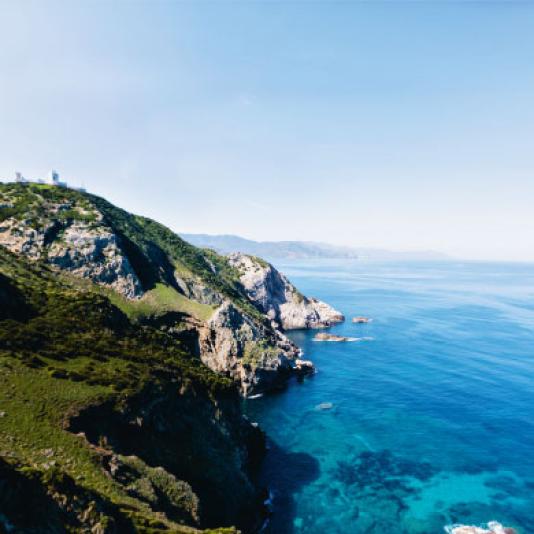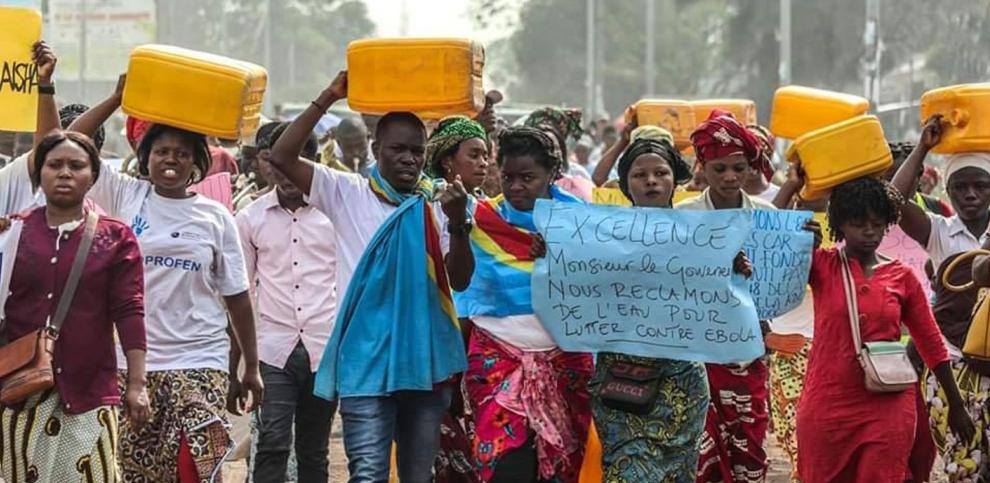Die Kraft des Zusammenhalts
What are the hallmarks of a cohesive society?
Nobody is marginalised. People all have the same rights – and opportunities to live their lives as they wish. And even if people do not always share the same opinion, they are tolerant and show solidarity to one another. Institutions are stable and enable fair participation in economic and political life.
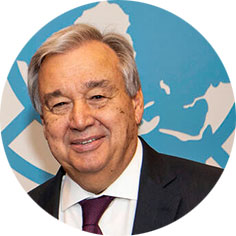
‘The world has an opportunity to overturn generations of entrenched and systemic discrimination. It is time to build an equal future.’
António Guterres,
Secretary-General of the United Nations
To promote social cohesion in Germany’s partner countries, GIZ strengthens their social systems through its work on behalf of the German Federal Government. This allows more citizens to experience equity and fairness and enhances their trust in their governments. In Cambodia for example, where the coronavirus crisis has hit the poorest especially hard, the country’s Government has been able to distribute targeted emergency aid to those who needed it most urgently. This was made possible by the IDPoor data platform, which GIZ and its partners developed in recent years. Particularly vulnerable households were already registered on the platform, enabling them to receive fast and effective financial support during the crisis.
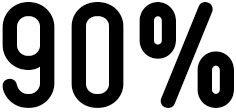
of urban growth in the coming years will take place in Asia and Africa.
Large conurbations where many thousands of people live close together are indicative of the state of social cohesion. This also offers an opportunity to implement ideas for improving the way people interact with each other in these areas. GIZ builds partnerships with city networks, such as ICLEI, C40, the Cities Alliance and multilateral stakeholders, to create safe places where people can come together and participate in public life. Urban areas are expanding all over the world, especially in Asia and Africa. Whether this growth is sustainable and socially responsible depends largely on urban planning. For this reason, we are providing support through programmes such as the Transformative Urban Mobility Initiative (TUMI) to put ideas for sustainable transport into practice in Ukraine. In Egypt, we are involving the local population in redesigning neighbourhood centres, which creates safe spaces where young people and families can enjoy recreation and sport.
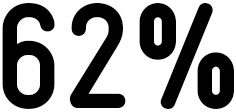
of the population in sub-Saharan Africa is under the age of 25.
The global population is growing and getting younger all the time. And this younger generation is demanding a greater level of participation. They want to – and must – be taken seriously. This is about their future. Young women and men need prospects – environmental, economic, political and social – so that they do not give up or turn to violence as a solution. The German development cooperation initiative Agents for Change works globally to empower those who want to bring about positive changes. It does so through worldwide networks that encourage peaceful conflict resolution, and by promoting digital start-ups in Africa and youth social work in the Middle East.
Thinking in terms of the bigger picture and fostering a community spirit is the path we have to take. The time is now.
Credits: iStock/Halfpoint; UN Photo/Eskinder Debebe
